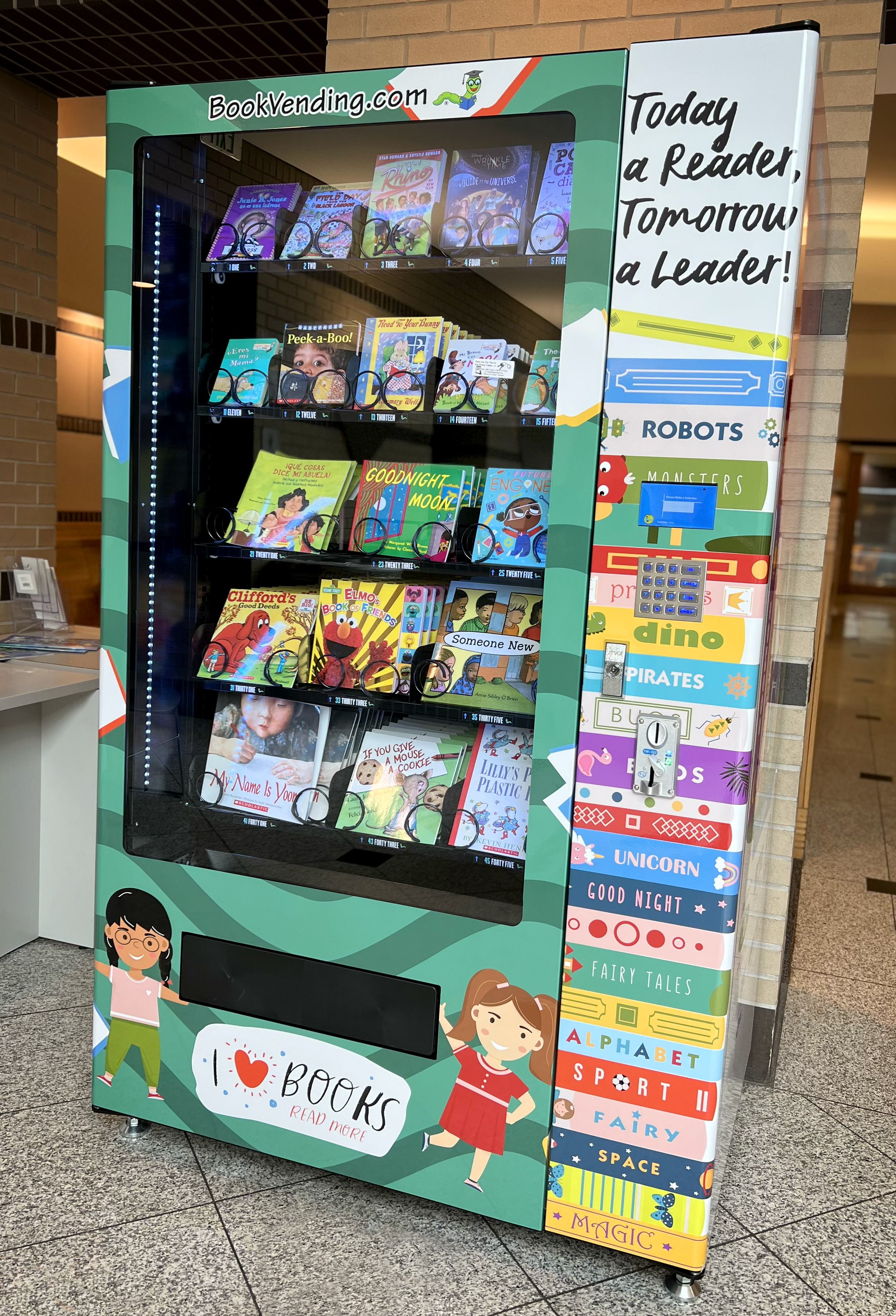 Photography by Chelsea EytelThe University of Alabama at Birmingham School of Education recently partnered with the Children’s Policy Cooperative of Jefferson County to provide the CPC’s first children’s book vending machine at Jefferson County Family Court.
Photography by Chelsea EytelThe University of Alabama at Birmingham School of Education recently partnered with the Children’s Policy Cooperative of Jefferson County to provide the CPC’s first children’s book vending machine at Jefferson County Family Court.
The children’s book vending machine is located in the second-floor family waiting area and provides age-appropriate books at no cost to families. UAB professors and teacher candidates provide guidance on the selection of book titles along with additional family resources to support reading.
“UAB preservice teachers applied what they were learning in the children’s literature course to help children and families in our community,” said Cora Causey, Ph.D., assistant professor of Early Childhood Education in the UAB School of Education. “In addition to helping curate a wide range of diverse age-appropriate literature, we provided resources to support families for young children’s literacy learning and development via accessible infographics and QR codes on the side of the machine.”
According to the United States Department of Education, many children from disadvantaged backgrounds enter school behind their peers in reading. This gap only widens over the summer, as these children are less likely to have access to books and other reading materials at home. As a result, they fall behind by an average of two months each summer.
“The children’s book vending machine is an excellent example of community collaboration to support grade-level reading,” said CPC Executive Director Shelly Mize. “Caregivers at Family Court can sign up for a free token, and children can use the token to select a book from the vending machine to take home.”
This endeavor will help to build in-home libraries while increasing reading engagement and fighting summer learning loss.
“It is our desire that as a result the children and families will reap the benefits, which include lowered anxiety, a desire to read on their own and, most of all, overall enjoyment of reading,” Causey said.